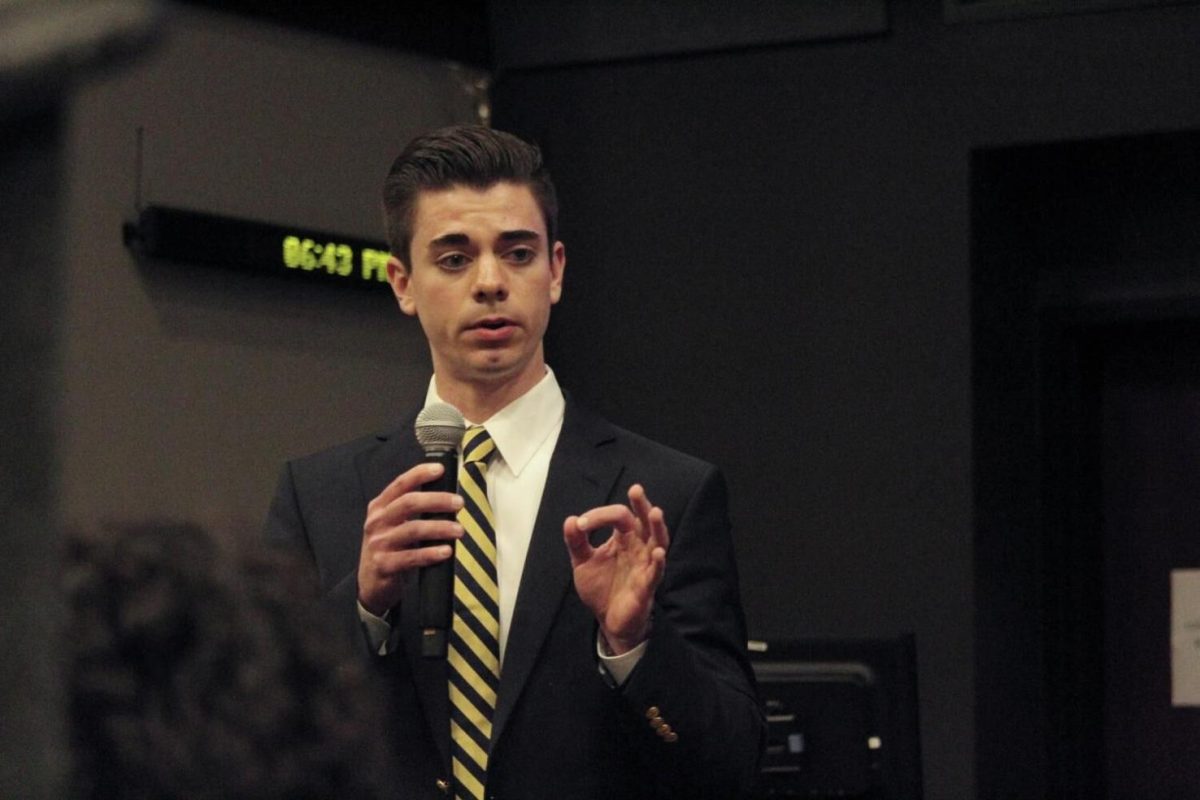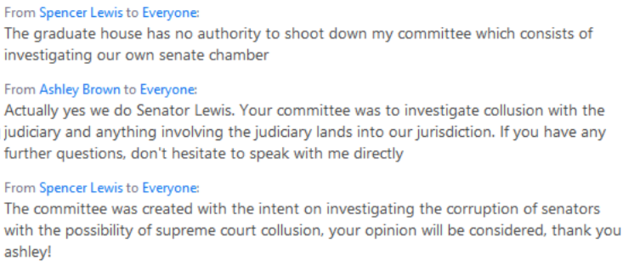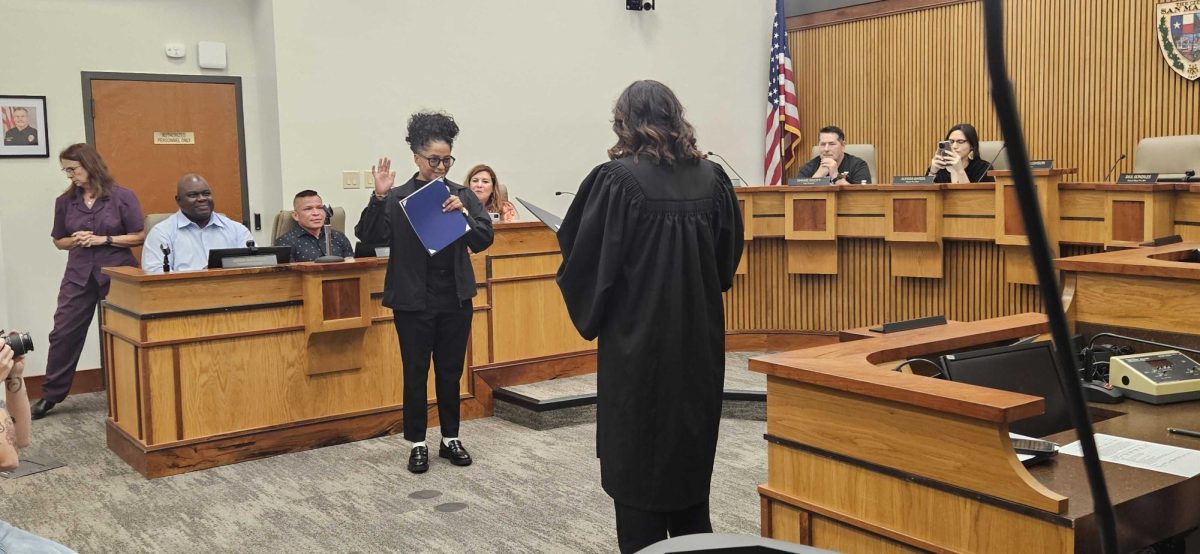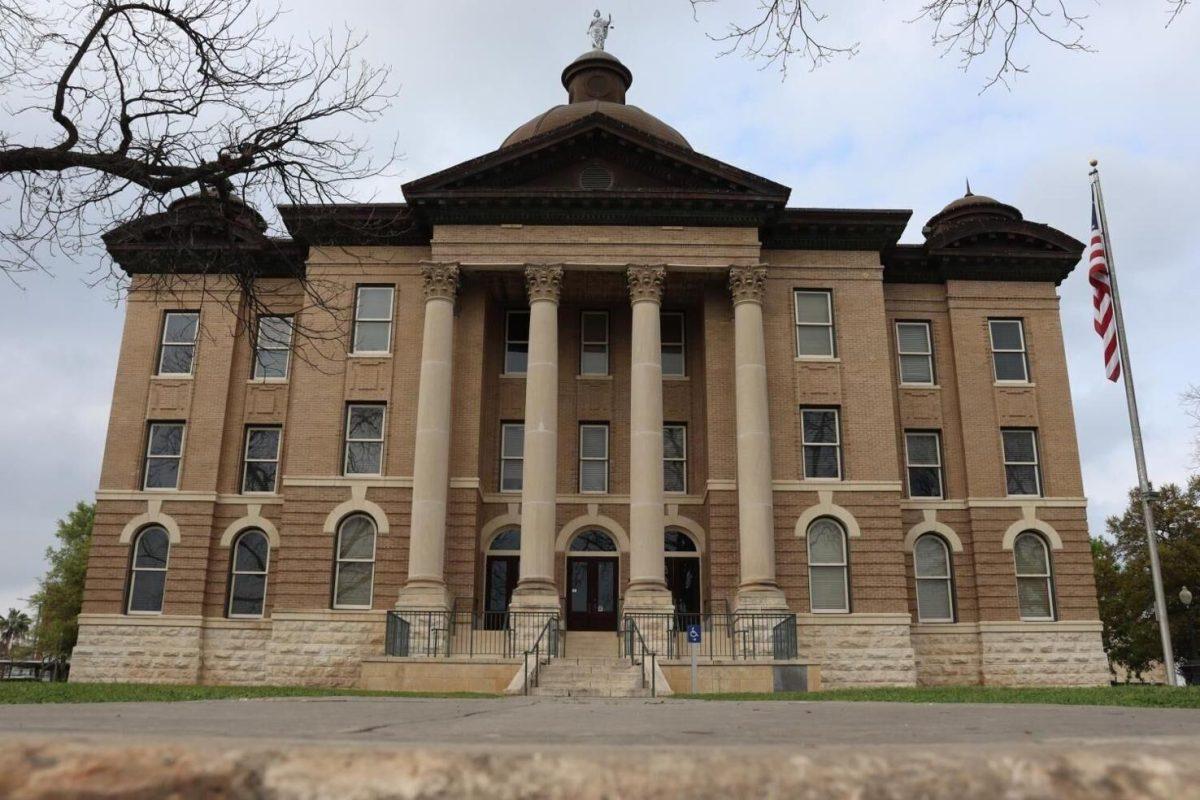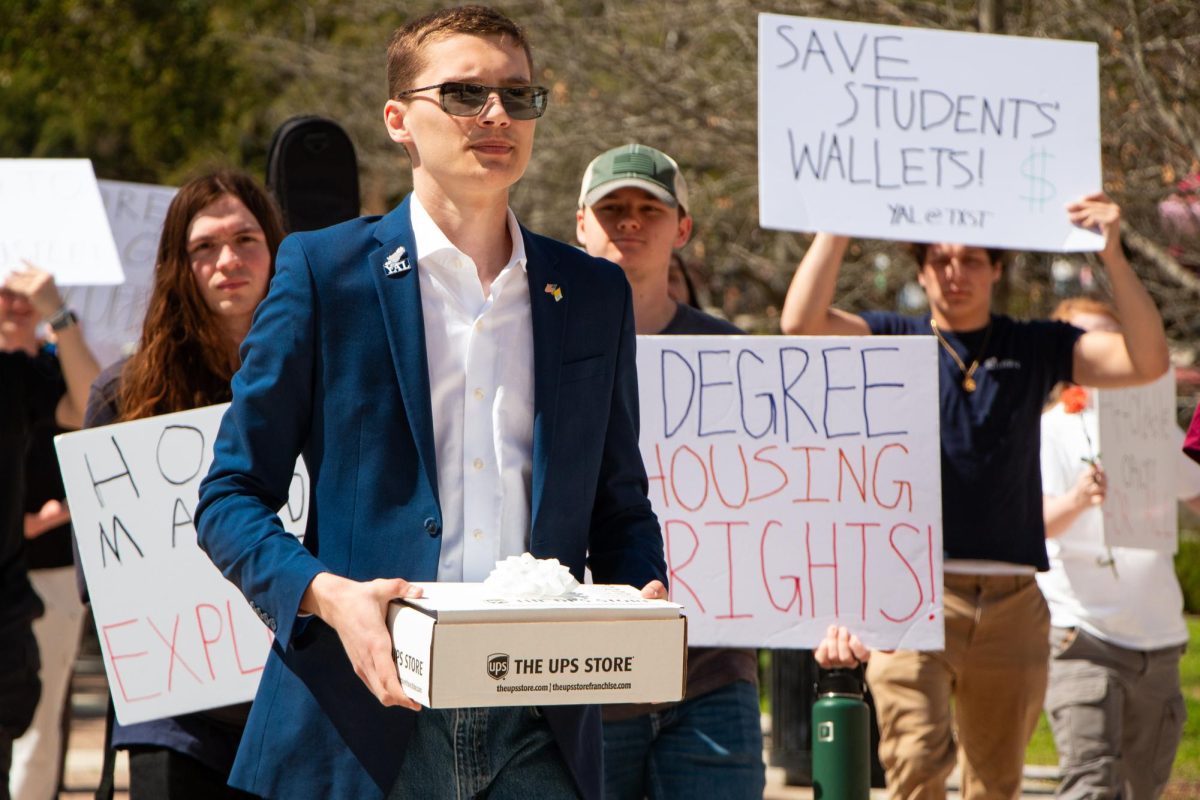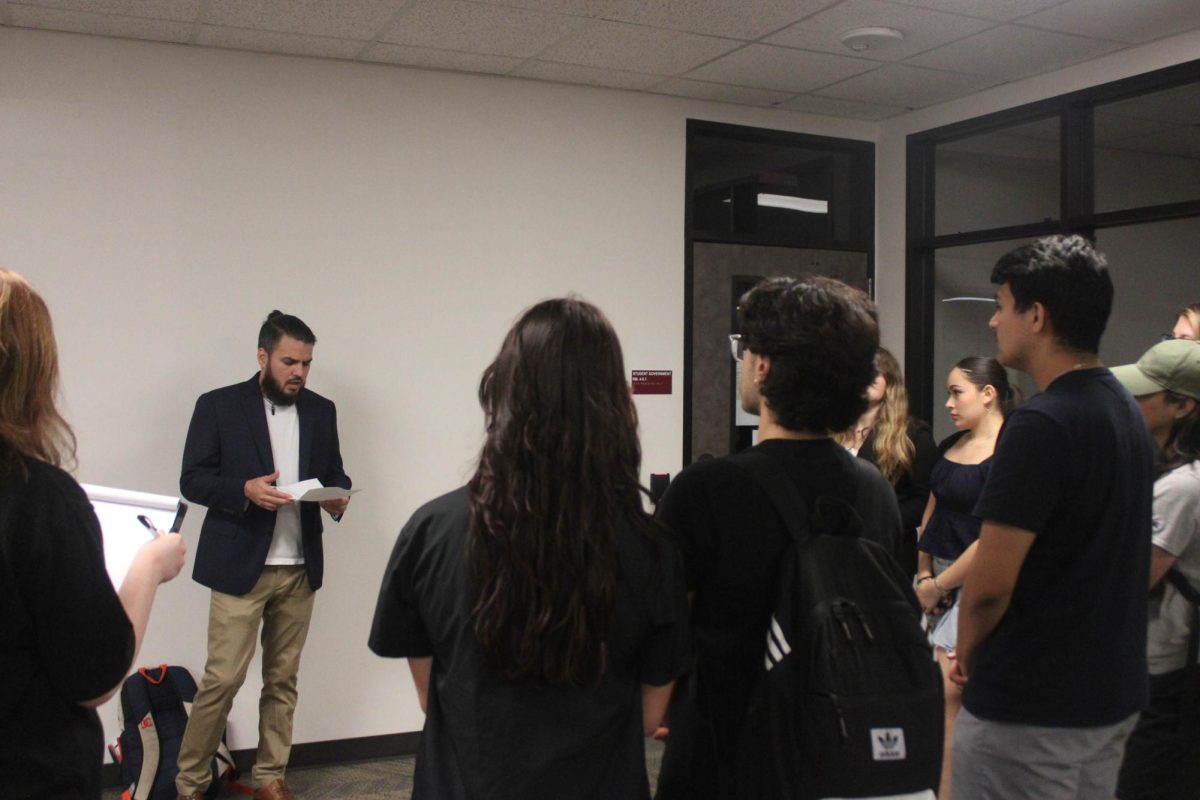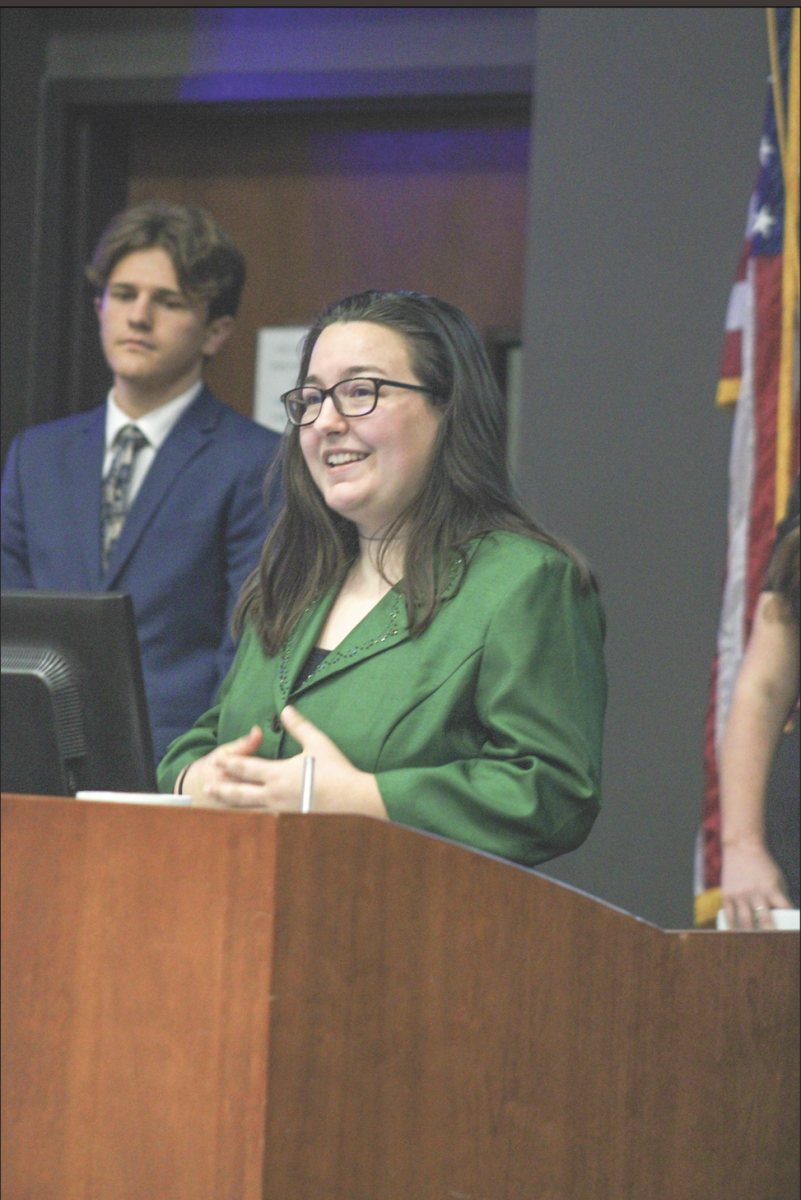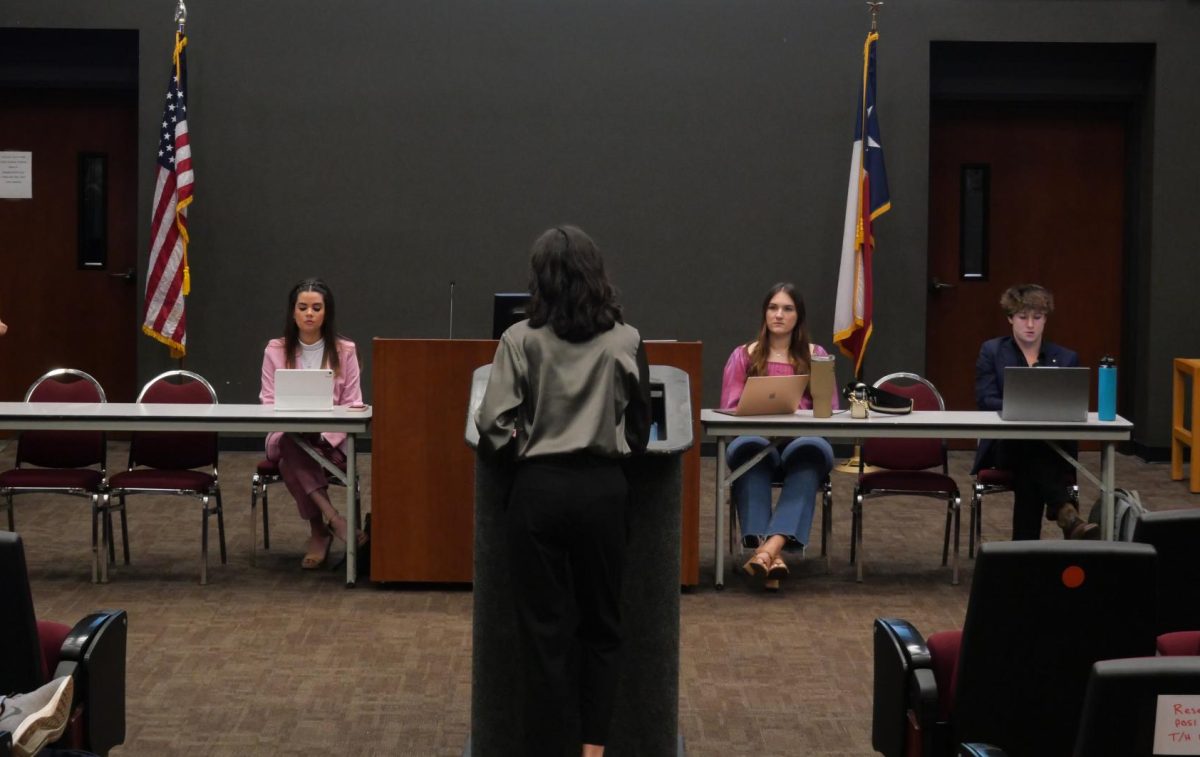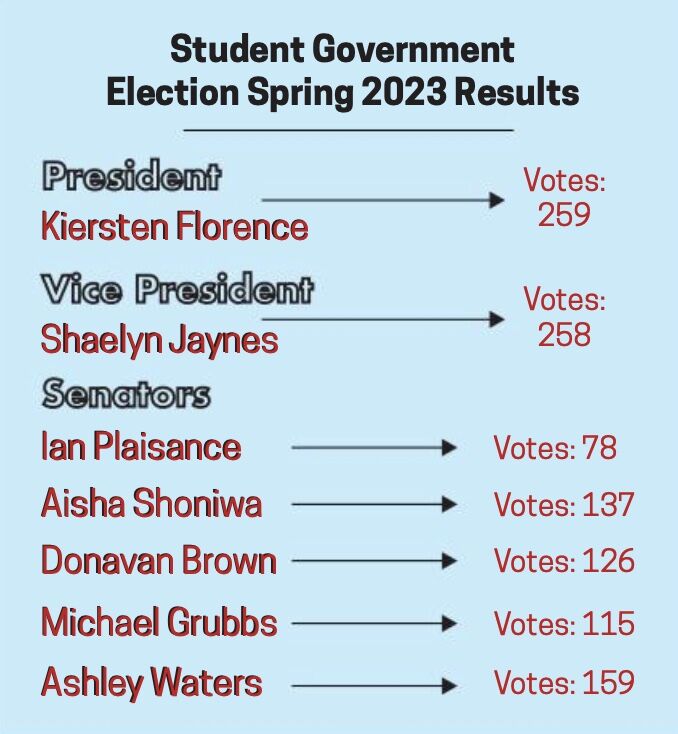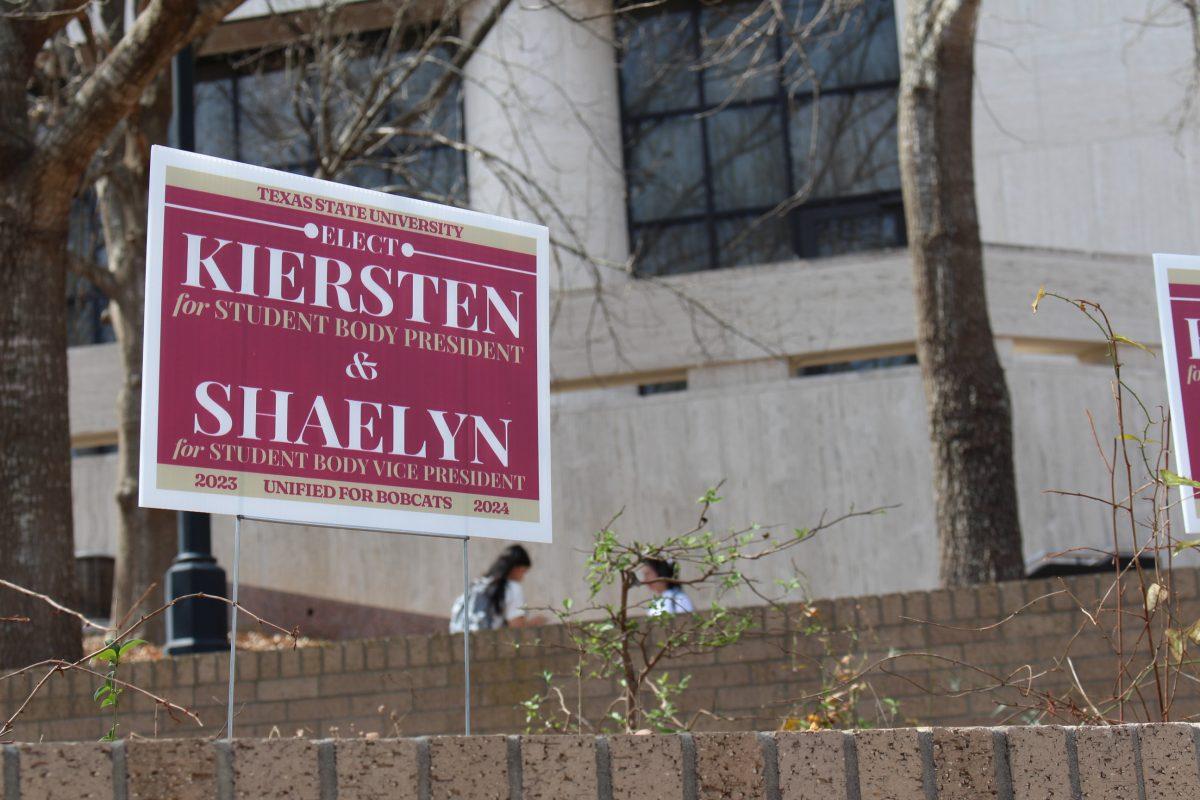Texas State’s Student Government Senate passed a slate of resolutions and appointed two new senators and a parliamentarian in its meeting on March 1.
A contempt of court citation was issued against Student Body Vice President Andrew Florence by former parliamentarian Cody DeSalvo a day after the meeting on March 2.
Florence issued a statement claiming the Student Government Supreme Court’s Feb. 25 injunction as unconstitutional. The Court’s injunction — ordering DeSalvo to be reinstated as a senator and parliamentarian and any resolution concerning his replacement in both capacities be halted — came after DeSalvo filed an appeal against his Feb. 22 censure and subsequent expulsion from the Senate.
“The Supreme Court is ordering me to violate the constitution, violate student government code of laws, violate my oath of office,” Florence says. “[It’s] overstepping their authority and [undermines the] democratic idea [of] separation of powers. Therefore, I cannot enforce the Supreme Court’s injunction order.”
DeSalvo filed a Motion for Contempt against Florence for failure to observe the court injunction order issued. As of 11:59 p.m. March 2, Florence has been suspended from his position of Student Body Vice President until he agrees to follow “the Student Government Supreme Court order or wins an appeal.”
DeSalvo, in a written statement to The University Star, says many of the senators voting to expel him, especially the ones sworn in one or two meetings before his expulsion, have no personal experience with him.
“It doesn’t pass the smell test,” DeSalvo says. “It’s all being orchestrated behind the scenes. The authors of the expulsion couldn’t even point to evidence during the hearing. At its core, this is all retaliation to the cases I’ve brought and won in the Supreme Court.”
According to the former parliamentarian, he expected his expulsion upon the appointment of said new senators. His disappointment with the decision mirrors his feelings on the entirety of Student Government over the last year and ongoing administration.
“Student Government is just poorly run and poorly lead this year – resulting in a loss of accountability and transparency at every level,” DeSalvo says. “When I point that out either in public or try to uphold our principles and norms in the Supreme Court some people get mad. Now they think they’ve gotten even.”
A public Contempt of Court Hearing for Florence will be held at 7 p.m. on March 4 via Zoom. This will give Florence an opportunity to “either agree to comply with the Court’s orders in this case or win an appeal from a majority of the Court.”
At its March 1 meeting, the Senate hosted Charles Hornsby, the outreach, assessment and retention graduate assistant from the Office of Disability Services, to discuss the department’s role on campus and what it offers the student body. Hornsby also spoke about ways to reach out to students who need help the most.
Sen. Spencer Lewis gave an update on the Senate Investigation Committee formed by the Checks and Balances Protection Resolution. The bill, passed during the same session as DeSalvo’s expulsion, seeks to investigate possible collusion between Senate members and the Court.
Lewis says the committee is making progress but is “being stonewalled left and right by the court.” He adds there is no specific figure currently under investigation, but that they are looking at some current senators.
In a Feb. 26 memorandum from Graduate House Leader Ashley Yasmin Brown, addressing all members of student government outside of her body, Brown writes the Graduate House of Representatives voted unanimously to reject the “Checks and Balances Protection Act” for several reasons: The unlimited subpoena powers enumerated therein were “too vague”, the committee is not specified as permanent or temporary, the committee is composed of too many officials and needs scaling down and the committee could become “biased because of the lack of representation.”
Brown adds the committee should have an equal number of senators and house representatives to create parity. Lewis, chair of the committee, disagrees with the notion the Graduate House can influence Senate proceedings.
A resolution authored by Sen. Tiger Shi to reform the University Seminar course, a course designed to improve the transition to higher education for freshmen, passed unanimously 30 to 0.
A resolution inviting Chartwells to place a Whataburger location on campus, written by Sen. Joseph Reed, passed 28-1-1, with one no and one abstention.
Senate leader Quentin Lorenz’s bill calling for more forgiveness over first and second time parking offenses passed unanimously 30 to 0, albeit with a clarification after Sen. John Rogers expressed concern about forgiving parking in spots reserved for students with disabilities. Sen. Andrew Gryce, a sponsor on the bill, says offenses such as those are not protected by the resolution.
Gryce’s own legislation, calling for a mural remembering students who have passed away, passed with 29 yeses to one abstention. Reed abstained, claiming the legislation is similar to his mural bill.
Sen. Matthew Smith authored two bills concerning increased support for Israel by Texas State. The first resolution calls for the implementation of study abroad trips to Israel as soon as the Centers for Disease Control and Prevention (CDC) says it is safe to travel abroad, passing with 25 yeses and four abstentions from Sens. Patrick Moloney, Quieraney Belvin, Serenity de Leon and Valeria Vargas. The abstaining senators say they do not feel comfortable voting on an issue they are not well enough informed on.
The second resolution relating to supporting Israel condemned the Boycott, Divestment and Sanctions (BDS) Movement. Smith says BDS is a “relatively anti-Semitic movement” that has used slurs and dog-whistle-like phrases and seeks to end U.S. involvement with Israel. According to Smith, having the university condemn the group would “show that we support our Jewish students.”
When questioned over Israel’s attacks on the Palestinian population, Smith says the best hope for peace for the Palestinian people is through peace between them and Israel, but that Israel is the only state between the two with a standing army that is not run by “essentially terrorists”. The resolution passed 29 to 2.
“The only Palestine I know really about is the one that was historically founded by the British Empire,” Smith says. “At this point in time, that country no longer exists.”
Reed’s resolution calling for a mural depicting first responders on the University Police Department building, passed unanimously 31 to 0.
A resolution encouraging the university to follow the goals of the 1776 Commission Report, also written by Smith, passed 25 to 6. The advisory committee, established in September 2020 by former U.S. President Donald Trump, called for “restoring patriotic education that teaches the truth about America.”
Smith says abiding by the findings of the report and “stick[ing] to the old standards could risk people ‘having different teachings in different [prerequisite] classes.’”
The American Historical Association referred to the report as “written hastily in one month after two desultory and tendentious ‘hearings,’ without any consultation with professional historians of the United States.”
Reed challenged the relevancy of the legislation, as the report was released on Jan. 18 and terminated by President Joe Biden on his first day of office, Jan. 20.
“Are you aware of the current President of the United States?” Reed says. “[Do] you feel like [the report] has already affected curriculum?”
Smith believes so.
“I think it’s already starting to help shape it, anyway,” Smith says.
Moloney, who works as a supplemental instructor for the Student Learning Assistance Center for U.S. history, says the content of the classes does not vary widely — albeit with some changes in course material from historian to historian, but not enough to leave students unprepared for coursework. The resolution passed 25 to 6.
Sen. Brett Leopold’s resolution calling for the reopening of Sewell Park passed 29 to 1 with one abstention from Rogers, the lone objection from Belvin. Rogers asked whether Leopold conferred with public health officials over the decision, to which Leopold says he has not but mentions that the CDC says the spread of COVID-19 is complicated in outside environments. Rogers abstained from voting for lack of information.
Peyton Walinsky and Katharine York were confirmed to the positions of Senators-at-Large with votes of 28 yeses to one abstention and 27 yeses to one abstention, respectively. Both abstentions came from Belvin, who says she does not have enough information on the candidates to make an informed vote.
Smith was voted to the position of parliamentarian, filling the spot left by DeSalvo after his expulsion. Smith ran unopposed but was still supposed to be subject to an anonymous vote to settle the matter. The vote occurred through the GroupMe app, but the ballot apparently did not hide the identity of the voter and displayed two options on the ballot, both Smith. The vote was essentially waived as a formality.
At the end of the meeting, Rogers requested removal from the Senate’s GroupMe chat, citing improper conduct and “vicious” conditions. Rogers insists he is not resigning, but simply wants no part in the group chat, despite the warnings of Florence and Student Body President Catching Valentinis-Dee, who informed Rogers he may be unaware of the legislation and topics discussed in future meetings.
“It’s gotten way out of hand,” Rogers says. “Insulting each other, that’s not why I’m here.”
All Student Government meetings and resolutions can be accessed by visiting the Student Government website.
Categories:
Student Government appoints new parliamentarian, suspends vice president
Ricardo Delgado, News Reporter
March 3, 2021
Vice-presidential candidate Andrew Florence answers questions during the vice-presidential portion of the Student Government Presidential Debate, Monday, Feb. 10, 2020, in the LBJ Teaching Theater. Florence issued a statement claiming the Student Government Supreme Court’s Feb. 25 injunction as unconstitutional. As of March 2, Florence has been suspended from his position of Student Body Vice President until he agrees to follow “the Student Government Supreme Court order or wins an appeal.”
0
Donate to The University Star
Your donation will support the student journalists of Texas State University. Your contribution will allow us to purchase equipment and cover our annual website hosting costs.
More to Discover


